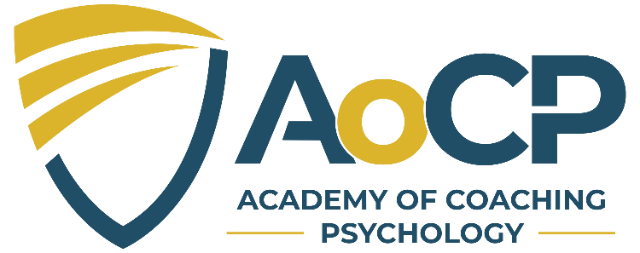Why Proper Training Matters if You Want to Coach with Positive Psychology
Oct 24, 2025Positive Psychology Coaching has become something of a buzzword in the coaching world. You’ll hear it in podcasts, see it in hashtags, and find it sprinkled across coaching programs everywhere. And it’s easy to see why: it offers powerful ways to work with human strengths, resilience, and wellbeing.
But here’s the thing most people don’t talk about.
It’s not enough to simply use a few ideas from positive psychology. If you want to integrate it into your coaching practice in a way that is ethical, professional, and impactful, you need proper training.
Why? Because positive psychology isn’t just about a few tools or techniques you can pick up from a book or a YouTube video. It’s a discipline of psychology. And when you work with people’s thinking, beliefs, and emotions, you’re stepping into territory that requires care, competence, and integrity.
Let’s unpack why that matters.
Coaching with Depth, Not Just Surface Action
One of the biggest traps in coaching is staying at the surface. Helping clients set goals, create plans, and take action is important, but it’s not always transformational.
If your sessions stay focused on external outcomes without addressing what’s going on beneath the surface, you may find clients:
• repeating the same patterns,
• hitting the same roadblocks, or
• achieving their goals but still feeling stuck or unfulfilled.
That’s because lasting change requires more than movement. It requires mindset shifts, emotional insight, and new ways of making sense of the world.
This is where Positive Psychology Coaching comes in. It’s not about “positive thinking.” It’s about using an evidence-based framework to help clients build real psychological resources; things like hope, efficacy, resilience, and optimism. The kinds of inner strengths that sustain change long after the coaching conversation ends.
But here’s the catch: if you only have a surface-level grasp of positive psychology, you risk reducing it to quick fixes or motivational slogans. And that’s not what your clients need.
Why Training Matters
There’s a growing demand for coaches who can work with depth and integrity. Clients are becoming more discerning. Organizations want credible, evidence-informed approaches. And the coaching profession as a whole is increasingly emphasising ethical standards.
That means the question isn’t just “Do you know about positive psychology?”
It’s “Are you trained to use it competently, professionally, and responsibly in a coaching context?”
Proper training ensures that you:
- Understand the psychology, not just the headlines. You’ll know where the concepts come from, how they work, and how they can be applied in practice.
- Coach with confidence. Instead of worrying whether you’re “getting it right,” you’ll have a clear framework and toolkit to draw on.
- Stay ethical. You’ll know the boundaries of coaching psychology, when to apply certain approaches, and when to refer on.
- Build credibility. Clients and organizations take you more seriously when you can point to recognised training and accreditation.
This isn’t about gatekeeping. It’s about professionalism. If you want to be a coach who works with psychology, even in a positive and strengths-based way, you owe it to your clients - and yourself - to be trained in a way that upholds the standards of our profession.
You Don’t Need a Master’s Degree
Now, here’s some good news.
You don’t need to sign up for a two-year academic degree to start integrating positive psychology properly into your practice.
What you do need is focused, high-quality training that gives you the essentials in a way that’s practical, applicable, and aligned to coaching.
That’s exactly why I created the Accelerated Certification in Positive Psychology Coaching.
This course brings together the most impactful, evidence-based elements of positive psychology coaching into one highly practical program. It’s designed specifically for coaches who want to work with psychology responsibly, without having to retrain as a psychologist.
And because it’s been rigorously designed and reviewed, it’s been formally approved for:
- 40 hours of Continuing Coach Education (CCE) with the International Coaching Federation (ICF)
- 40 points with the Association for Talent Development (ATD)
So you’re not just learning in a vacuum. You’re building hours, credits, and recognition that strengthen your standing as a professional coach.
Who It’s For (and Who It’s Not For)
This certification isn’t for everyone, and that’s intentional.
It’s not for coaches who just want a script, a formula, or a set of motivational exercises. It’s not for those chasing quick wins or surface-level results.
It is for coaches who want to:
• work with real depth and nuance,
• develop their own reflective practice,
• challenge themselves to grow alongside their clients, and
• integrate psychology into coaching with integrity and competence.
Curious?
So, if that interests you, you’re in the right place. And if you’re curious about how the course is structured, what you’ll learn, and how it all fits together, I’ve created a detailed page on our website for you to explore further. There's also an option to request a copy of the handbook if you really want the detail!
Learn more about Certification here
And for those who are always thinking one step ahead, there’s an option to take things even deeper.
Growing in Mastery
Once you’ve completed the Certification, you can choose to continue onto the Accreditation pathway. This is where everything you’ve learned starts to come together in a more reflective, applied way.
The Accreditation in Positive Psychology Coaching builds on the certification with an additional 30 hours of supervision, guided reflection, and portfolio development - an opportunity to consolidate your learning and develop towards mastery. It’s not just more hours for the sake of it, it’s about deepening your understanding, strengthening your ethical grounding, and refining your presence as a coach.
And because it’s been independently reviewed and approved, the accreditation pathway is EQA-accredited by EMCC Global (European Mentoring and Coaching Council). If you’re not familiar with them, the EMCC is one of the leading professional bodies in our field. They set internationally recognized standards for excellence, ethics, and reflective practice in coaching, mentoring, and supervision. So completing our Accreditation pathway positions you to apply for your own individual coach accreditation (EIA) with the EMCC if you want to take that extra step. You can read more about our Accreditation pathway here:
Learn more about Accreditation here
Final Thought
Ultimately, whether you chose certification or accreditation, the real value lies in how you apply what you learn, in how you listen, question, notice, and support your clients to grow. Training gives you the foundation, but it’s what you bring to it — your curiosity, care, and presence — that turns good coaching into something truly transformational.
So no, you don’t need a Master’s degree.
But you do need depth.
And that starts here.
Your Next Step
If you’re curious about how these ideas translate into coaching practice, our free masterclass is a good place to start. It introduces the foundations of Positive Psychology Coaching and offers space to reflect on how this approach could support your development as a coach.


